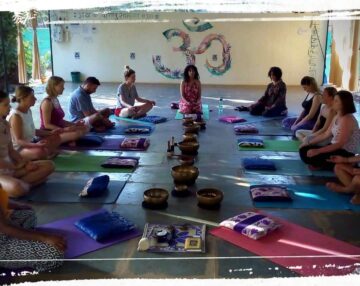It was June 2013. Life had been feeling pretty difficult for a while, but like a frog being gradually boiled alive, it had happened slowly, and it all felt very “normal.” It felt normal to be on the alert for the next bad thing that would inevitably happen. It felt normal to be anxious and stressed and feel like I didn’t have time for everything that needed to be done. It felt painfully normal to feel like everything I did was in some way inadequate. Like I was inadequate. Defective. Not good enough. I bought into the story I told myself that I just needed to try a bit harder and then it would all be ok. More hustling. More striving. I was intoxicated by the idea of being able to “catch up,” and, once I did, life would magically feel better. More manageable.
It was a warm evening in June and I’d stayed late at work. Even for me. 3am kind of late. I was unravelling and I couldn’t see it. Nothing felt right. The font was the wrong style and the wrong size. The black text looked harsh. It needed to be dark grey. The sub-headings were wrong. Every page I looked at had a million things that were wrong. I spend hours formatting, changing, obsessing. After several hours I remembered this wasn’t what I was supposed to be doing. I was supposed to be making a financial forecast. No one had wanted me to change the formatting of the rest of document. I opened a spreadsheet. I looked at the clock. 2am. I struggled for an hour, but I couldn’t do it.
The next day, life as I knew it ended. I worked with and for my mum. She had the hardest job in the world that day and she probably saved my life. Not that I saw it that way at the time. She called me into her office and said, “I’m sending you home.” I was shocked. There was so much to do. I needed to be there. She needed me. Everyone needed me. She continued, “I don’t want you back until you’re better.”
Better than what? Better than who? “I’m fine,” I told her. I was the last person in my life to believe that statement and even I was starting to doubt it. But I asserted it like my life depended on it. And in a very real way, it did.
After making a heated case to not be sent away, which only served to support my need for a break, I screeched out of the car park and drove to my immaculately clean flat. It was neat and tidy and had all the required furniture, but nothing surplus to requirements. Suddenly on that day, I realised that it mirrored the emptiness I was feeling inside. I sat on the sofa and had no idea what I should do next. My phone rang, which was a welcome relief from the numb emptiness of staring into space.
“I’ve spoken to David,” my mum told me. I let out a sigh of relief. David was the Chair of our Board of Directors and managed a local mental health charity. He was my friend, and I was sure he’d have my back. He worked with people who were experiencing challenging and crisis of their mental health and I was sure would have explained that I just needed a good night’s sleep and I’d be fine.
“He thinks it will be 6-8 weeks before you’re ready to come back to work.”
I felt as though the bottom had just dropped out of my world. What the hell was I going to do for 6-8 weeks? I worked late into the evenings. I worked at the weekend. I didn’t take my annual leave because I was so busy working. What was I going to do with all those hours if I didn’t have work to fill them? Who was I going to be without my job role? I shouted and swore and begged and pleaded. I explained how essential I was. How much work there was and how I was the only person that could do it. It would all fall apart without me. Finally, my body got still as I realised what had been at the root of this reaction. In a barely audible voice, I whispered “please don’t take work away from me… it’s all I’ve got.”
This realisation was a watershed moment in my life. It was the first time I’d been this vulnerable or honest with myself and marked the beginning of a seismic shift that would impact every aspect of my life moving forwards. I had no idea what was wrong with me. I had no diagnosis and didn’t know where my personality traits ended, and diagnosable mental health symptoms began. I didn’t know how to recover or if I even would. There was so much I still didn’t know. But I knew that I needed to start living very differently to the way I had been living. My life was in pieces, but even then, I knew that I was not going to rebuild it as it had been before. I knew that there was no going back, even though going forward felt absolutely terrifying.



